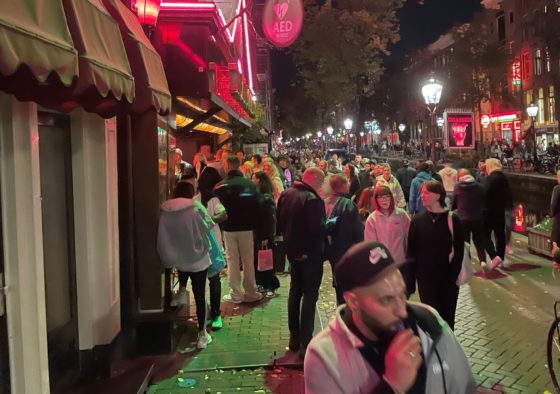Airbnb-style rentals ‘harmful’ to Amsterdam, says tourism chief


The head of Amsterdam’s city marketing organisation has said that Airbnb-style rentals are ‘harmful’ in cities, and that the Dutch capital no longer wants to grow tourism.
Geerte Udo, director of Amsterdam & Partners, told mayors and city experts at the Bloomberg CityLab meeting on Tuesday that policies to aim for ever more tourism and businesses had been replaced by ‘quality over quantity’.
‘Private holiday rental was harmful in cities like Amsterdam,’ she said. ‘I’m not talking about rural areas where it was not cost-efficient to have a hotel but now people can host visitors.
‘If it benefits the locals [that is different] but in our city, it didn’t. It took away a lot of houses from the market. We as Amsterdam people have to fight hard to find a house anyway. So that’s what we think: from a city perspective, it takes out social cohesion and it didn’t add any houses.’
Udo believes that from a city perspective, too many private holiday rentals negatively affect social cohesion as the guests take less responsibility for the neighbourhood, while in a period of housing shortage, houses are ‘built to live in not as investment property to rent out to visitors’.
Moral holidays
She told the conference that back in 2015 the city marketing policy was to attract as many tourists as possible – but now the emphasis has changed completely to focus on ‘high value’ business and cultural tourists, plus more effective crowd management.
However, Udo said that the red light district has to change if Amsterdam is to find a better balance between local needs and successful tourism policy.
‘If you talk about the change of an image, that’s not easy,’ she said. ‘First, you have to make sure you have a different city.
‘That’s why I’m really thankful to our mayor [Femke] Halsema, that she has a huge project on redesigning our old city centre. As long as we have the offer that we have now in the city centre, we will attract people that are going on moral holidays. You cannot influence that with campaigning.’
Sensors
She added that many tourists want to explore more than De Wallen (red light district), and the city is focusing on promoting different attractions to these people. ‘It’s our task to see how we can manage social algorithms so that you get the right image of Amsterdam that will attract the visitors that really add value to our destination and the quality of life of our residents,’ she said. ‘We don’t want to grow tourism any more: we totally shifted from quantity to quality.’
The city now uses sensors in public spaces to help with crowd management, Halsema told the conference on Monday, alerting hosts in the red light district to impose one-way walking on streets if they become so busy police and emergency services can no longer enter.
Udo said that the city is using such tools and social media to encourage people to go to attractions at times when they are less crowded, or visit places that are off the beaten track.
‘As soon as we know how to manage public space so that we do not experience the overcrowding in the old city centre and beyond, then we can maybe host more people,’ she said. ‘But growth in itself is not a goal of ours.’
Thank you for donating to DutchNews.nl.
We could not provide the Dutch News service, and keep it free of charge, without the generous support of our readers. Your donations allow us to report on issues you tell us matter, and provide you with a summary of the most important Dutch news each day.
Make a donation